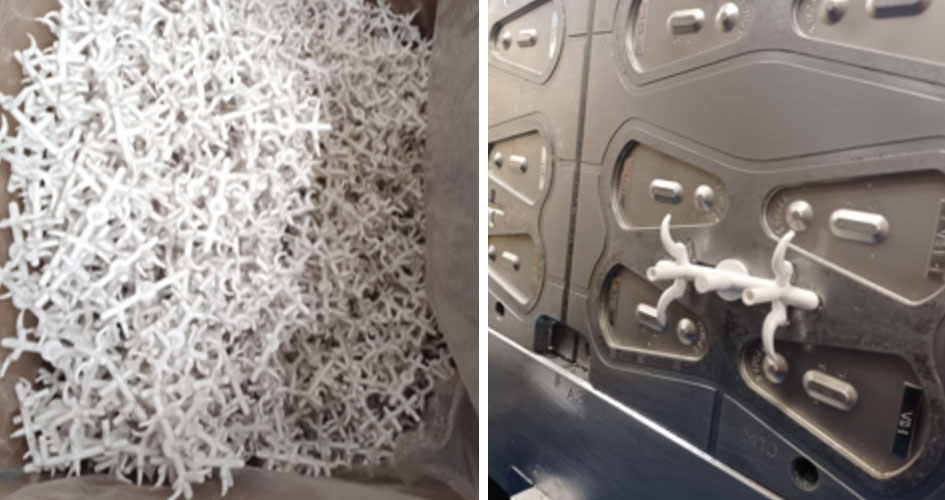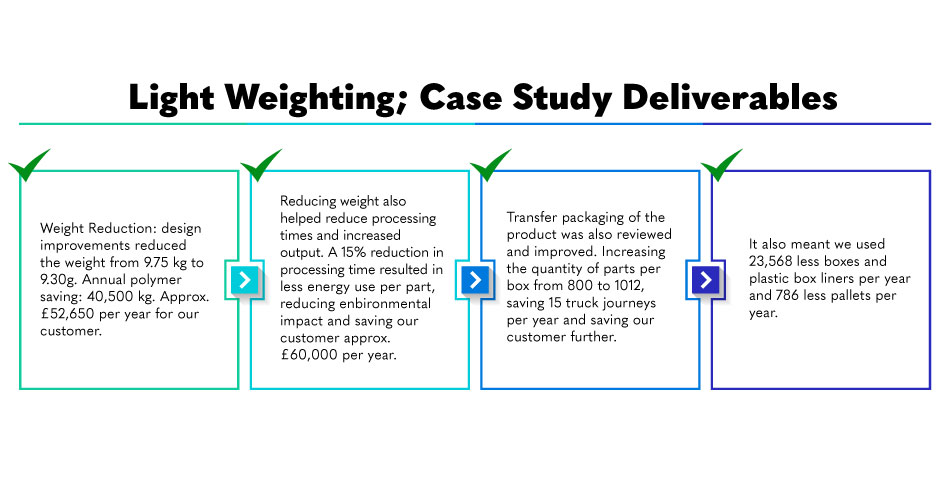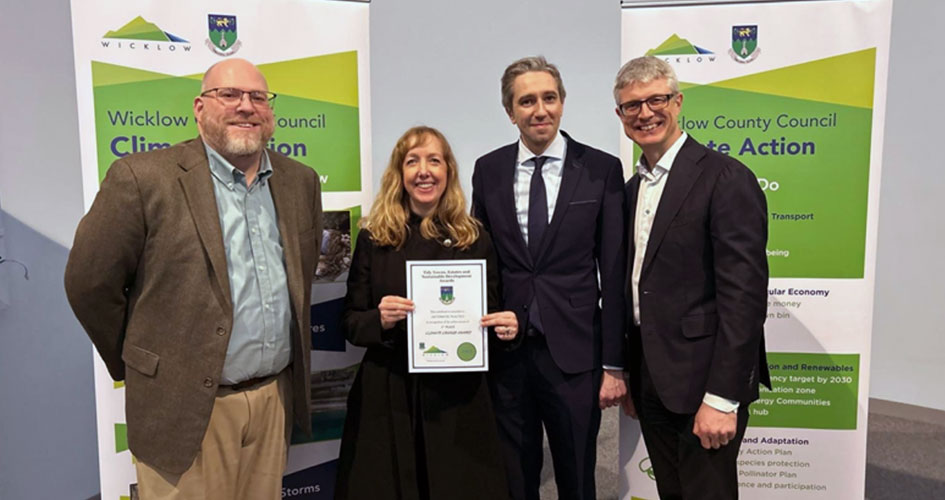Comar acquired Automatic Plastics Ltd. (APL), a contract manufacturer based in Ireland that specializes in medical devices and pharmaceutical packaging, in 2022. They are now Comar’s EU plant, known as APL, a Comar Company. Comar operates 11 manufacturing facilities with over 1,200 employees worldwide.
If you ask Andrea Cawley, the Commercial Director for APL, a Comar Company, when plastics manufacturing will be “green enough,” her answer is swift and no-nonsense: never.
Sustainability is a journey, not a single step. “It’s about looking for the areas in which you can do better and then doing it,” said Cawley, “It’s essential that we actually take action to bring our environmental policies to fruition, from staff to community to the planet.”
There is always something more you can do, something you can make more efficient, less wasteful, or less energy-consuming. APL is doing exactly that.
APL is dedicated to becoming a leader in sustainable plastics production. They are trailblazing innovations that make a real difference, and winning awards for their efforts.
However, they’re not in it for awards or accolades. APL is focused on achieving ISO14001 certification, which is earned through exceptional environmental management processes, and is committed to reducing their impact while maintaining high manufacturing standards.
This article shares insights into Comar’s green initiatives at APL and the remarkable progress they have made on their sustainability journey.
Comar’s EU plant has been on a Green Lean journey since 2017, driven by their passion to create a more sustainable future for plastics, and the highest grade products for their customers.
As a custom injection molder specializing in plastic components for the medical device and pharmaceutical packaging sectors, APL recognizes the dual challenge of leveraging plastic’s benefits while addressing environmental concerns. Plastics serve an essential need in this space, specifically offering the longevity, durability, and reliability required for products that literally carry the weight of life and death.
The company’s integration into the Comar group in 2022 further aligned their sustainability initiatives, underscoring their dedication to responsible manufacturing.

To fully engage their staff with the concept of energy cost and the effort required to produce it, APL started with a bicycle and an event.
To illustrate what goes into producing energy, employees at an event competed against one another by generating energy using bicycles. This fun and useful competition helped to foster a culture of energy awareness and conservation while highlighting the importance of sustainability in everyday operations.
The newly focused team set out to improve their sustainability, one machine at a time. To reduce energy waste, you first need to know what, where, and when you are using it.
One of APL’s primary initiatives was installing energy monitors on every machine to track and optimize energy use. They eliminated wasteful energy consumption by focusing on significant energy users and reducing standby time.
The next step, literally, reduced wasted air.
Compressed air is a nearly invisible energy suck, as small leaks in the system won’t prevent it from being efficient enough to perform well. Those leaks may not be something we immediately think of when considering energy footprint reduction. But, every tiny leak means compressors working hard to maintain air pressure. Tracking down and repairing leaks has a worthwhile impact on energy use over time.
Regular checks for compressed air leaks also contribute to their energy-saving efforts.
Each operator collects for the daily scrap bags, “owning” the end results of their efforts to reduce waste; the end result of APL’s effort is an engaged culture of working together to reduce waste.

Another major energy cost that may not always be considered is actually something extra. That something extra is the discarded sprue or waste after molding, or unnecessary plastic used during manufacturing. In one project alone, they reduced waste by 30% of the total shot weight for a single product.
Comar’s EU plant has made significant strides in plastic waste management by designing molds with hot runner systems, eliminating waste, reducing or removing sprues, and improving efficiency.
Collaborations with clients have led to lightweighting projects, reducing the amount of plastic used in products and delivering cost savings. A case study revealed a reduction of 40,500 kg of polymer and significant energy savings, resulting in a financial benefit for both the plant and their clients, of approximately €52,650 per year.

Additionally, the plant introduced reusable packaging, replacing cardboard with durable, returnable solutions, further minimizing their environmental footprint. APL isn’t going to stop there, either.
Future initiatives include installing solar panels to cover up to 11% of the plant’s electricity needs, demonstrating their ongoing commitment to sustainability and environmental responsibility.

Comar’s EU plant’s efforts have not gone unnoticed, as evidenced by their Climate Action Award presented by Simon Harris, Taoiseach (Prime Minister) of Ireland. An award for which they were nominated by the local community.
Nestled in the rural Irish community of Tinahely in Wicklow, APL actively collaborates with the Tinahely Community Association and has made a positive impact in the area that inspired the association to nominate them.
Their next goal is ISO14001 certification.
ISO 14001 is an internationally recognized standard for environmental management systems (EMS). It provides a framework that organizations can follow to set up an effective EMS, helping them improve their environmental performance through more efficient use of resources and reduction of waste.
The standard is designed to address the balance between maintaining profitability and reducing environmental impact.
By achieving ISO 14001 certification, organizations demonstrate their commitment to environmental stewardship, compliance with applicable laws and regulations, and continuous improvement in their environmental impact. This widely respected certification can enhance a company’s reputation, increase customer trust, and provide a competitive advantage in the marketplace.
Not many manufacturing plants finish, let alone start, the process of winning ISO14001 certification. APL, using the initiatives already in place, is well underway in achieving that goal, having recently completed the Stage 1 audit and with the Stage 2 audit scheduled for Q4 2024.
The completion of the Stage 1 audit for ISO14001 certification is a testament to their progress. They plan to achieve full certification by the end of 2024.
Comar’s sustainability efforts positively impact the medical device, pharmaceutical, and food industries by ensuring that its products meet high environmental standards while maintaining quality and reliability.

Comar’s EU plant’s sustainability journey exemplifies their dedication to environmental responsibility and continuous improvement. By implementing innovative solutions and engaging with clients and the community, the plant is paving the way for a greener future in plastics production.
The team is focused on topics such as bioplastics and alternatively sourced materials—but it would note a word of caution on the risk of “greenwashing”—working with customers to deep-dive into initiatives to assess real environmental impact.
As they aim for ISO14001 accreditation and expand their facility with a focus on sustainability, Comar remains committed to being a responsible manufacturer and supplier globally.
Join us in supporting environmentally friendly manufacturing and discover how Comar can meet your needs with responsible and innovative approaches.